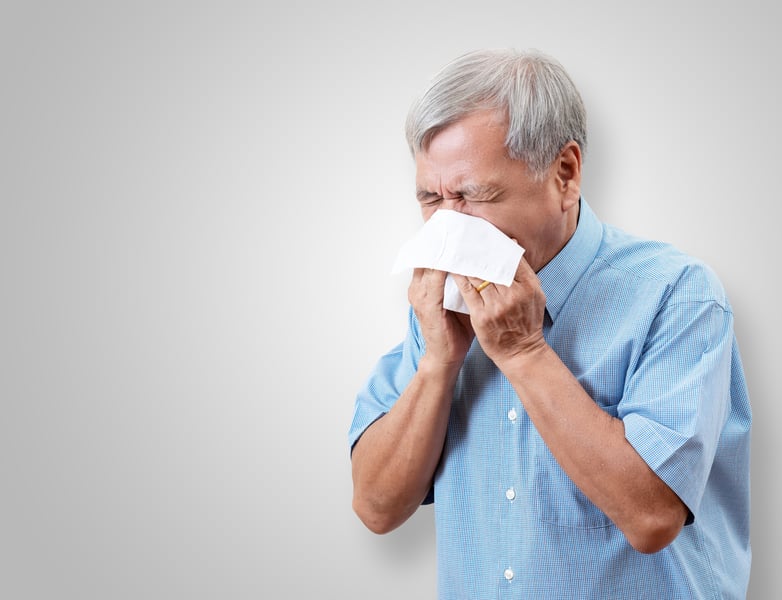Texting Now Available!
Anoka text # 763-265-7803 | Andover text # 763-878-7207
Elk River text # 763-878-8275 | St Francis text # 763-314-3312
Manténgase sano!

- Dennis Thompson
- Posted September 12, 2023
FDA Panel Says Common OTC Decongestant Is Useless
For decades, sick people have been taking essentially worthless over-the-counter cold remedies to clear their stuffy noses, a key advisory panel for the U.S. Food and Drug Administration said Tuesday.
The panel voted unanimously that nonprescription oral medications containing phenylephrine -- including Sudafed PE, Vicks Sinex and Benadryl Allergy Plus Congestion -- don't do anything to ease congestion.
The committee's ruling could prompt the FDA to pull all oral decongestants containing phenylephrine from store shelves, leaving cold sufferers with limited options to relieve their misery.
"I feel this drug in this oral dose should have been removed from the market a long time ago,"said Jennifer Schwartzott, the patient representative on the panel, the Associated Press reported. "Patients require and deserve medications that treat their symptoms safely and effectively, and I don't believe that this medication does that."
Phenylephrine has been available in cold remedies since the 1970s, and can be taken as a liquid, pill or nasal spray. Tuesday's decision does not include the nasal spray version.
Medications with phenylephrine took on more prominence after the highly effective decongestant pseudoephedrine became harder to purchase in 2005, as part of legislation aimed at combatting the meth epidemic.
More than 242 million bottles or packages of phenylephrine-containing cold remedies were sold in 2022, compared with about 51 million cold products containing pseudoephedrine, FDA briefing documents for the meeting show.
"Ever since pseudoephedrine went 'behind the counter' in the 2000s, phenylephrine became one of the most commonly available and widely used decongestants,"said Dr. William Fox, an internal medicine doctor in Charlottesville, Va.
"It is easy to pick up from the drug store shelf, and it lacks the barriers that come with obtaining pseudoephedrine from the pharmacist, which typically require verifying your identity with a driver's license -- or in some states requiring an outright prescription,"Fox added.
But recent clinical trials, lab studies and evidence reviews caused the FDA to question the effectiveness of phenylephrine.
The more recent trials show that the current recommended dosage of phenylephrine is not effective in patients suffering from allergies, the briefing documents say.
"We believe that these new clinical pharmacology and clinical data are consistent, substantial and believable, and they confirm that orally administered phenylephrine is not effective at any dose that can be developed and still provide a reasonable margin of safety,"the documents say.
This prompted the FDA to review the studies that had been used to approve phenylephrine.
"We noted significant methodological and statistical issues with the design and conduct of the original studies submitted to and evaluated by the panel,"the documents state.
The problem appears to be that the body doesn't absorb phenylephrine well enough to make it useful. Higher doses might work, but those doses would cause blood pressure to rise significantly.
"Therefore, in addition to lack of efficacy, there may be no path to evaluating higher doses of oral phenylephrine as a nasal decongestant,"the FDA concluded.
An industry group, the Consumer Healthcare Products Association (CHPA), argued against the FDA's position before the agency's panel.
"Considering the data from multiple clinical trials demonstrating effectiveness and decades of in-market experience, CHPA urges the panel to recognize phenylephrine's clear benefits and critical role in public health,"CHPA Vice President of Regulatory & Scientific Affairs Marcia Howard said in a statement to the committee.
The CHPA also asked the panel to consider the potential impact on consumers.
"Simply put, the burdens created from decreased choice and availability of these products would be placed directly onto consumers and an already-strained U.S. health care system, which is why CHPA encourages the panel to consider the real-world experience and needs of consumers when making decisions that will have such broad implications,"Howard added.
But Fox said doctors have already been shying away from recommending the products to patients.
"For years, there has been the suggestion in the medical literature that phenylephrine lacks the efficacy of pseudoephedrine or oxymetazoline,"Fox said. "So in my own practice, I have steered patients toward the latter two remedies.
"The good news is that alternatives to phenylephrine are available on the market today,"he added. "For symptoms of the common cold, pseudoephedrine and oxymetazoline nasal spray are effective.
"Pseudoephedrine is subject to purchasing restrictions in most states; it is no longer on pharmacy shelves. However, it can typically be purchased from the pharmacist with a valid driver's license,"Fox noted. "While this does pose a barrier, that barrier is not insurmountable and the restrictions do help to prevent the illicit diversion of pseudoephedrine toward the manufacture of methamphetamine."
Fox added that patients also might want to try antihistamines rather than a decongestant, particularly if they have high blood pressure.
More information
The U.S. Food and Drug Administration has more regarding its briefing on phenylephrine.
SOURCES: William Fox, MD, internal medicine physician, Charlottesville, Va.; FDA Briefing Document: Efficacy of Oral Phenylephrine as a Nasal Decongestant, Sept. 11, 2023; Consumer Healthcare Products Association, statement, Sept. 11, 2023; Associated Press

